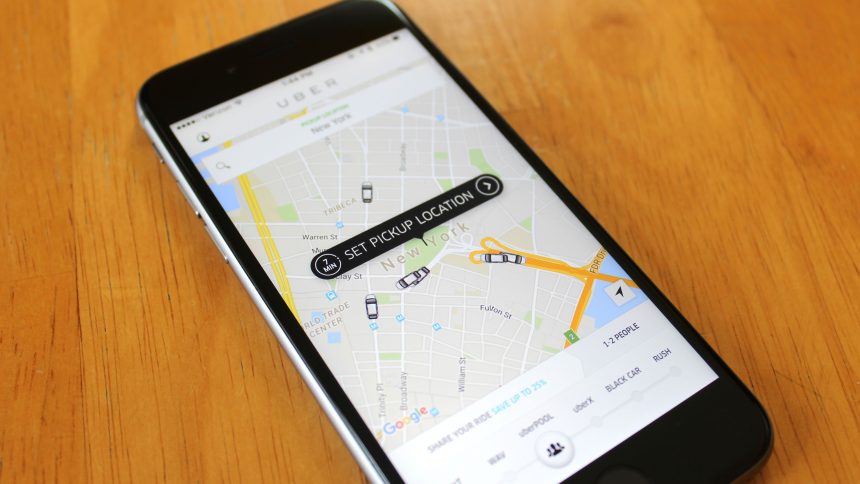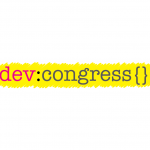If you’ve ever been on the roads in Accra, you know that the traffic situation can be frustrating. Commuters get up at crazy hours in the morning just to dodge the rush hour traffic. Getting up at 4 am to get ready for work is not an unusual thing for drivers in the city. They’re used to the anarchy known as the Accra traffic.
The public transportation system is not something the city can boast about. Time after time, the Metro Mass bus company brings in new buses into the city to help with public transportation. Some commuters do board these buses but it’s not as patronised as it ought to be.
The recent introduction of the Bus Rapid Transport vehicles (dubbed Ayalolo Buses) seemed like a good idea at the time but it seems that the people behind the idea forgot that Accra has a problem: We don’t have enough space to accommodate a BRT system.
The BRT buses are currently operational but if you’re a commuter in Accra, you know your safe bets are two options: Taxis and Trotros

The failure of the government to provide a system where commuters can have a well regulated public transportation system has paved the way for Taxis and Trotros to dominate the roads.

If you’re ever been in traffic and observed your fellow traffic mates, you will see that majority of the vehicles are either trotros or taxis with some private vehicles sprinkled in there.
Unfortunately, the two options of trotro and taxis are not a godsend but rather the only options on the table. If you live in the Kwasieman area of Accra and you need to get to work in the city on a limited budget, you’re most likely going to rely on a trotro to get you from Point A to Point B. The taxi option is available but it would feel like you’re paying an arm and a leg if your negotiation skills are not up to par.
So who regulates this seemlingly make shift system consisting of trotros and taxis? That would be the Ghana Private Road Transport Union (GPRTU) of the Trade Union Congress.
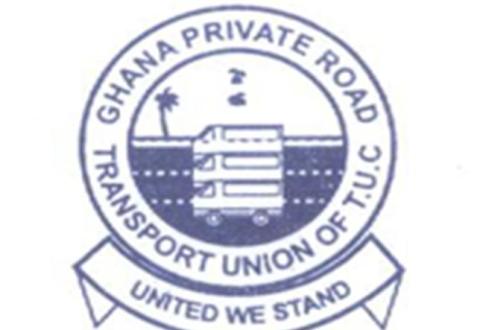
Is The Ghana Private Road Transport Union Stuck In The Stone Age?
First off, finding out about the GPRTU was tough. Firstly, there is no website where you can find information on this organization. There is no social media presence and their logo looks like it was designed in the 70s. In a way, their organization seems to operate like it’s still stuck in that era.
From what information I could find, the G.P.R.T.U. was formed to oversee the efficient management of private road transport in Ghana. It was legally established on 19th May 1967 and has its headquarters in Accra.
But apart from regular news items about increase and decrease in transport fares, it’s hard to find any central information about the organization or its members. It seems like they don’t want to be engaged in this new internet age.
From the information that I could gather, the GPTRU collects taxes/dues from its members which include taxi and trotro operators.
How much do they take? I can’t be certain. But to operate a taxi or trotro in the city, it would seem like you would need to have a conversation with the GPRTU before you started operating.
But what else does the GPRTU do? I thought maybe they also enforce safety and driving standards for the operators of these trotros and taxis. That would seem like a thing that an organisation like the GPRTU would do.
But from reading a news article from 2014 in the Daily Graphic, that does not seem to be the case. In the story, the Driver Vehicle and Licensing Authority (DVLA) put up a plan where they would not register and renew the road-worthiness of commercial vehicles which do not have seatbelts fixed to each seat.
Sounds reasonable right? Well, the GPTRU didn’t seem to think so at the time.
The Chairman of the association at that time, Mr Robert Sarbah, said if the decision by the DVLA was not rescinded, it would destroy the transport business and double the unemployment rate in Ghana, since more than 50 per cent of drivers would be rendered jobless.
Wait… What? That doesn’t seem to make sense.
Mr Robert Sarbah then went on to say the following:
“The assertion by the DVLA that the implementation of the use of seatbelts would bring about a 50 % reduction in accident deaths by 2020 is not backed by scientific proof.”
Maybe I’m not well versed in the matter of transportation, but that sounds like an absurd thing to say publicly.
Fast forward and it looks like the enforcement of seat belts in commercial vehicles is not being followed.
But looking past that, the maintenance of these trotro and taxi vehicles can certainly be called into question. On average, I notice about two to three broken down trotros in the city everyday. Some of these vehicles apparently have “road worthy” certificates on them. How is that even possible?? Aside from constant breakdowns, these vehicles are also the worst polluters in the city, pouring out black smoke from their exhaust pipes.
So who is monitoring these vehicles? Frankly, I don’t think the GPTRU nor the police is doing anything about that. If we’re going to talk about how these drivers operate their vehicles, that would be another whole paragraph I would have to write.
Invasion of the Ride-Sharing Apps?
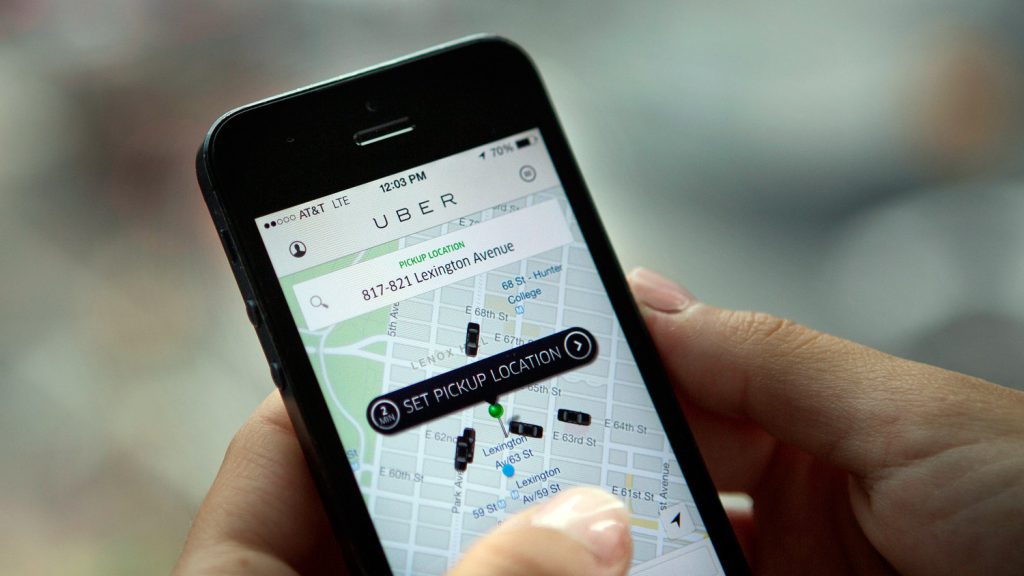
It’s only been a year since Uber started operations in Ghana. People have different views on the success of the ride-sharing company but most citizens know of the existence of the app.
The question is: Can ridesharing apps like Uber disrupt the public transportation space?
Right now, it’s hard to say yes. Most people who have regular commutes in the morning still use the Trotro system to go back and forth to their locations. Plus, the price is way cheaper even if it’s means sacrificing a bit of convenience.
The taxi system might be the hardest hit by Uber. Not only does Uber recruit regular drivers but they also recruit taxi drivers into the service as well.
So now, if you’re thinking of operating a taxi, which organization would you go with: Uber or the GPRTU?
Requirements to be an Uber are minimal. Just have a valid driver’s licence and a valid roadworthy certificate. You do not need to operate in a certain vicinity if you’re an Uber driver. The only disadvantage is that Uber takes 25% of your earnings for every trip. I’m sure the GPTRU’s fee is way less.
But on the bright side, you don’t have to paint your car those ugly colours that taxis have. Plus, you don’t have to roam the city looking for passengers. Passengers request for trips and you drive to them. That’s fuel saving efficiency.
But Uber is just one ride-sharing app. What about the competition?
Taxify launched in Accra last year. But from their Twitter page, their last tweet was in December. So have they quit and closed up shop? One might assume so.
But despite Uber being the only fully ride-sharing sharing company in town, it doesn’t mean there can’t be a bigger disruption in the transportation space. Open source tools like LibreTaxi operates just like the Uber app. A budding entrepreneur or a group of developers can easily develop a competitor and grab market share from Uber. They just need to pitch the idea to taxi drivers as an Uber alternative.
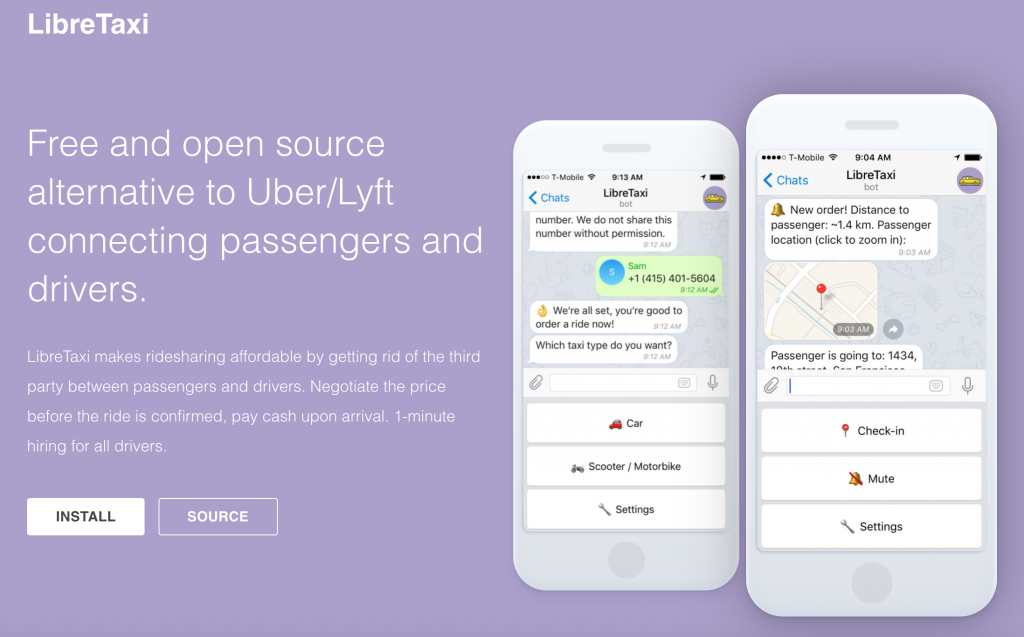
But could you get the trotros on board with the concept of a ride sharing application? I doubt it. It’s a very daunting task. But that doesn’t mean it can’t be done.
Carpooling Options
Roads are congested in Accra because everyone wants to own a private vehicle to move around in the city. This leads to lots of cars on the road and because the public transportation is not reliable, it compounds the problem.
But why aren’t people using the carpool option?
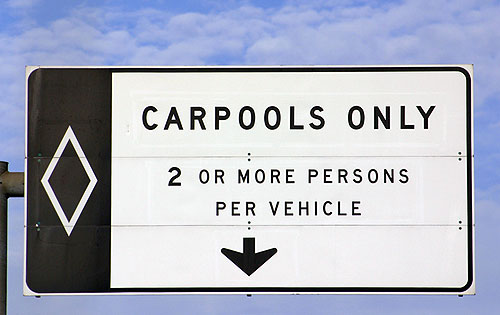
Carpooling is the sharing of car journeys so that more than one person travels in a car. On weekdays, most Ghanaians go to work and come back straight home after work is done. So why don’t office workers try to use carpools?
It’s a simple concept: If someone has a car and on his/her route to work, there are other office workers that can be picked up and driven to the same office, they could arrange to pay the person driving some amount of money for petrol. If you get four (4) people in the car and they all chip in 10 cedis for the week, that’s 40 cedis for fuel.
Even Uber jumped on this idea and incorporated the option of carpooling in their app. It works the same. A group of passengers request an Uberpool and a driver picks up those passengers who are all heading in the same route. It’s a collective payment so passengers all pay a percentage of the full amount.

Lyft, another ride-sharing company (in the US) also had a carpool option but they recently closed down the service. Bummer…

But without mobile applications involved, can Ghanaians embrace the carpooling option or have we become a society where it’s every man and woman for themselves when driving?
The Public Transportation System In Ghana Needs A Spark
Folks, I don’t think the GPRTU is as effective as it should be in Ghana. It seems like a free for all when it comes to safety and driving standards with taxi and trotro drivers. These cars are not well maintained and the drivers seem to be kamikaze pilots trying to get killed as they carelessly weave their way through traffic trying to get to the next passenger. Where’s the discipline? Can the GPTRU enforce this?
Where’s the discipline? Can the GPTRU even enforce this?
What about safety? How do passengers really feel about riding with these two options in the form of taxis and trotros? I’m guessing for most, it’s about price and not convenience and utmost safety.
The BRT service is a good step forward but like I said before, the concept of “Rapid Transport” is defeated once you realise there are no separate lanes for these BRT buses to operate. You basically need to redesign the whole city to make these buses work. I fear that these buses will just become like regular buses, adding to the fleet of Metro Mass buses in the system.
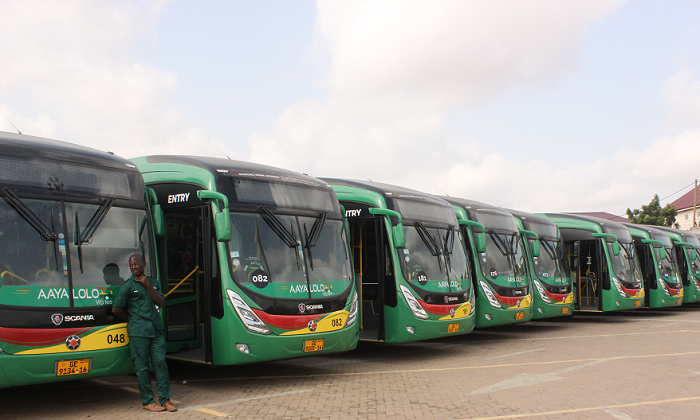
With Uber in the system and being somewhat successful, can other ride-sharing apps come into play and make ride sharing a bigger thing? Or is it going to limited to a few commuters who are taking advantage of it?
Maybe the GPTRU could look at modernizing and incorporating a bit of technology in their organization. Maybe look at GPS monitoring of their drivers or a device which monitors high speeds? Perhaps create an app whereby commuters can rate drivers and specific taxis and trotros which lead to fines to enforce accountability?
I could throw out ideas all day but it’s the GPTRU itself which has to be open to change and get with the times.
Can ride-sharing apps gather steam and make taxi drivers join Uber and other potential ride-sharing companies? Can some company come in with technology and disrupt the trotro space?
Maybe.
But the road obstacles ahead seem daunting. Manoeuvring through those speed bumps and potholes is going to take a lot of effort before we get a good transportation system. But the first people who need to make the step towards getting better might be the GPTRU.



